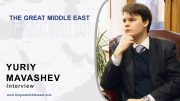The unthinkable happened in Turkey two years ago this month. Late in the evening of July 15th, 2016, a group of renegade soldiers launched a coup d’état. Armoured tanks appeared on to the streets and bridges of Istanbul, and fighter jets screamed over Ankara, the capital, to bombard the parliament.
At least 250 people were killed in the chaotic hours after the operation began. The soldiers were reportedly within minutes of capturing Recep Tayyip Erdogan, Turkey’s president, and overthrowing the government. Yet the coup failed, thanks largely to the bravery of the Turkish people, who took to the streets in their tens of thousands to defy the soldiers.
The coup attempt had two striking aspects. One is that nobody expected it: Turkey was not in political or social chaos, which was the pretext for previous coups. The other is that it ended with such a whimper after a few hours. Previous coups had been more or less successful, from a military perspective, and many Turks accepted the army as the country’s final political arbiter. That notion is now discredited. Finally, the motives for the coup, and who was behind it, remain deeply murky.
Overwhelmed
An event as traumatic as the attempted armed overthrow of an elected government might be expected to divide a society, or perhaps even to unite it. Yet in the two years since that fateful night, something more complicated has happened in Turkey: in almost every sense, the country has been overwhelmed by the event and its aftermath.
At least 50,000 alleged coup sympathisers have been imprisoned, awaiting trials that may never take place. About 150,000 people – teachers, civil servants, judges, police officers, academics – have been dismissed from their jobs. Private wealth has been confiscated from business families suspected, without evidence, of complicity in the coup. Opposition media has been silenced; 150 journalists languish in Turkey’s prisons. Daily life for many Turks has been turned upside down.
Erdogan emerged from the experience unscathed and defiant, and said the coup attempt would allow him to create “a new Turkey”. In presidential and parliamentary elections last month, he became the most powerful leader since Kemal Ataturk, the soldier-statesman who founded the republic in 1923. Though he did not secure an absolute majority in parliament, Erdogan is now as untouchable in Turkey as Vladimir Putin is in Russia or Xi Jinping in China.
It was inevitable, and justifiable, that the coup plotters would be pursued. But what Erdogan has instigated in the past two years is tantamount to a counter-coup. He has usurped the country’s parliamentary democracy by abolishing the post of prime minister and ensuring that the presidency has almost unlimited powers that allow him effectively to rule by decree. Now, Turkey languishes in a post-coup state of emergency, with a truculent autocrat running almost a one-man state. Welcome to the new Turkey.
For a decade after coming to power in 2002, Erdogan opened Turkey to the world. He gave a political voice and economic and religious autonomy to the conservative middle class outside the big western cities. The economy boomed. He enhanced the civil rights of Turkey’s Kurdish minority. He even, for a time, acted as if he wished Turkey to join the European Union.
Now, under the sway of delusions of omnipotence, Erdogan has become prone to increasingly consequential strategic errors. His first mistake was to court, and then fall out with, a Turkish cleric named Fethullah Gulen, who lives in the United States and leads a cult-like religious movement with a wide following in Turkey. (It has similarities to the cult of scientology.) Erdogan is obsessed with the idea that Gulen was responsible for the coup.
Another mistake was to bait Kurdish separatism back to life by reneging on political and social reforms. Yet another was to misread the civil war next door in Syria, which led Erdogan to overstate its Kurdish-separatist dimension and to underestimate the threat from Islamic State.
Achilles heel
Perhaps his most telling miscalculation was on the streets of his native Istanbul, where he was once the mayor. In 2013, protests erupted led by youngsters – the children of the generation who vote for him – objecting to the closure by officials of a downtown park slated for redevelopment. The protests spread nationwide. Infuriated by what he saw as their ingratitude for all he had done for them and their parents, he cracked down with needless force. Eleven people were killed. The generation of Turks in their late teens and 20s have known nobody but Erdogan in power. They may now be lost to him. That is his Achilles heel.
The EU and the US have mishandled Turkey over decades, often by taking it for granted, and by misunderstandings and prejudice on both sides. They were slow to condemn the coup attempt and show solidarity with a Nato ally. Erdogan has not forgotten that.
Now is the moment for Europe to make amends, by re-engaging with Erdogan and perhaps persuading him to lift the state of emergency so that a semblance of normality can return. In return, Brussels must forge a relationship with Turkey that goes beyond the one of mere convenience that exists today.
Isolated in his 1,000-room palace in Ankara, surrounded by acolytes and prey to neo-Ottoman illusions, Erdogan needs friends. He has transformed Turkey, largely for the better, over the past 16 years. By re-engaging with him, the EU can persuade Erdogan to build on that achievement, not to undo it.
Vincent Boland was the Financial Times correspondent in Turkey from 2004 to 2008.
Source : www.irishtimes.com




Be the first to comment at "EU needs to engage with Erdogan and embrace Turkey"